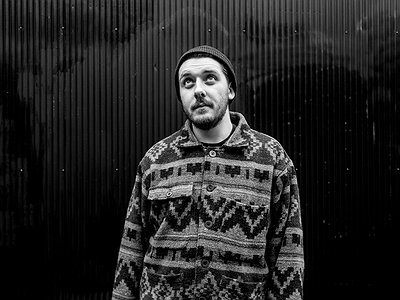Can you talk about a breakthrough work, event or performance in your career? Why does it feel special to you? When, why and how did you start working on it, what were some of the motivations and ideas behind it?
In 2015, I started working with an incredible dancer called Tony Yap. Tony runs a yearly festival in his home town Melaka in Malaysia, so that November I found myself spending two weeks in that gorgeous town working with a group of about 65 dancers from all over the world. There were a few musicians visiting from Indonesia, but apart from that I was the only musician in the crew. There was also a Bull-trance (Bantengan) shaman from Batu, East Java called Agus Riyanto who held space for the group.
The grand finale for that festival was an all-in durational piece in the main performance area; a huge partially destroyed 17th century Dutch church on the top of a hill in the centre of town. The second we began it started to rain hard and didn’t let up for the whole show. I’ll never forget playing my trumpet opposite Agus in that rainstorm whilst he cracked his whip and guided the dancers through a trance state. The second we finished the rain stopped and I’m still convinced Agus brought that storm in on purpose!
Apart from that whole experience being totally mind blowing, it fundamentally changed how I think about my practice and set in motion a whole new wave of exploration and discovery that I think I’m still riding on.
There are many descriptions of the ideal state of mind for being creative. What is it like for you? What supports this ideal state of mind and what are distractions? Are there strategies to enter into this state more easily?
I’ve become quite clinical and unromantic with this stuff of late. Fundamentally, I trust in the quality of my work and that of my collaborators, so it’s really just about making time and finding space. Anything beyond that is out of my control, so I may as well take a deep breath and focus on what is in front of me when the time comes.
Music and sounds can heal, but they can also hurt. Do you personally have experiences with either or both of these? Where do you personally see the biggest need and potential for music as a tool for healing?
When I read this question, the first thing that came to mind was bursting into tears whilst singing with my partner and her family at a funeral. There is an immediacy about music that cuts deep, and when the timing is just right, those moments of ‘cutting though’ can change your life. I am cautious to go any more specific than that, part of the magic is the unpredictability of when/how/where/why those moments happen.
There is a fine line between cultural exchange and appropriation. What are your thoughts on the limits of copying, using cultural signs and symbols and the cultural/social/gender specificity of art?
As a white, hetero male living on stolen land, I feel it’s vitally important to have checks and balances inbuilt into my practice that keep me level with this stuff.
I’ve been extraordinarily lucky in my career to exchange ideas with all sorts of creative people. I don’t always get the balance right, no one does, but thankfully these experiences have blossomed into truly inspiring projects and lasting friendships that help me grow.
Fundamentally, it comes down to the diversity of your pool of collaborators and how you choose to navigate/temper privilege in order to foster inclusive spaces for true experimentation. If that balance is right, this space becomes one of developing new modes of communication alongside friends instead of that desperate feeling of grappling with extraordinarily complex territories and hoping you didn’t offend anyone in the process.
Our sense of hearing shares intriguing connections to other senses. From your experience, what are some of the most inspiring overlaps between different senses - and what do they tell us about the way our senses work?
I’m intrigued by that feeling of being ‘outside of your body’ that can sometimes happen when deep in music-making or listening. It feels less of an overlap of senses and more like a synergy. I don’t know if sound is the trigger or gateway into that space, maybe it’s more that I’m so focussed on sound in those moments that the other senses creep in and bind themselves to the experience without me realising. Or it could just be that it’s easy to forget that none of our senses work in complete isolation and that we need a reminder every now and again.
Art can be a purpose in its own right, but it can also directly feed back into everyday life, take on a social and political role and lead to more engagement. Can you describe your approach to art and being an artist?
Whilst I would consider my approach to be more abstract than directly political, I do hope that part of what I do evokes some sense of community activation and social consciousness.
Ultimately, I’m trying to express who I am and to offer something that makes space for others to have an experience. Bound up in those offerings are all the turmoils and complexities of me trying to do my best in a crazy time, but music is great like that, it can mean many different things to many different people and it’s all good.
What can music express about life and death which other forms of art may not?
It’s something about the immediacy and intimacy that the medium of music offers. It permeates all sorts of moments in our lives in weird and wonderful ways. So, when it comes to life and death, those moments of rawness uncover secret moments where music has cut into your soul and transformed who you are.


